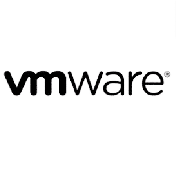Seminarinhalt
- Understand all architecture components of the HPE Container Platform 5.0
- Understand all basic administration concepts of the HPE Container Platform 5.0, including installation, tenant management, user management and maintenance
- Understand application development to cluster handling
- Learn how HPE Container Platform integrates with existing IT infrastructure and integration with MapR
- Understand monitoring and alerting services in HPE Container Platform
Programm
- Introduction
- Learning objectives review
- Course schedule review
- HPE Container Platform architecture overview
- Control plane/management overview
- Network architecture overview
- Handling distributed stateful app
Storage architecture overview HPE Container Platform Packaging— Install, Upgrade
- Requirement gathering and planning
- – HPE Container Platform installation checklis
- HPE Container Platform sizing tool
- Installation/deployment
- – Deployment + ecosystem planning
- – Worker/gateway deployment methods
- – App Store
- – Virtual cluster lifecycle (including scripts)
- – Container placement using host tags
- – Adding host to create Kubernetes cluster
- Airgap support
- License
- Upgrade
Kubernetes cluster rolling upgrade} HPE Container Platform Multi-Tenancy
- Multi-tenancy
- – What is a tenant
- – Comparison EPIC tenant and K8s tenant
- Tenant management
- – Kubernetes: Creating tenant
- – Kubernetes: Tenant and namespace
- – HPE Container Platform agent operator
Tenant management HPE Container Platform User Role
- User roles
- – Role and corresponding view
- – Navigating to different roles
- User authentication
- – HPE Container Platform management login
- – User authentication into HPE Container Platform with 3 different methods
- – Exercise: Tenant group membership
- RBAC: Role binding (authorization)
- HPE Container Platform five users roles
- – HPE Container Platform role is mapped to K8s role (RBAC)
- Session management
- – User authenticated sessions
HPE Container Platform Storage
- Overall storage architecture
- Ephemeral storage
- Tenant share
- HDFS – DataTap
- Application persistent storage
- – Container migration
- FS mount/DTap management
- MapR management
MapR Integration
- MapR terminology
- MapR services
- HPE Container Platform and MapR integration
- MapR Control System (MCS)
- MapR user accounts
- MapR management
- DataTap/MapR improvements
HPE Container Platform Application
- Complex stateful application deployment
- – App Store
- – Kubernetes application management
- Anatomy of Kubedirector application
- Application lifecycle
- – Deploy application
- – Deployment vs statefulset
- – start, stop, scale virtual cluster
Kubedirector operator HPE Container Platform Monitoring and Alerting
- Kubernetes cluster service monitoring
- Dashboard monitoring
- Usage monitoring
- Monitoring architecture
- HPE Container Platform usage monitoring tools
- Kibana: UI visualization
- Collecting container node storage usage
- Elasticsearch monitoring logs
- Elasticsearch common tasks
- Best practice
- SNMP alerts and SMTP notification
- From planning to production to optimization—Big-Data-asa-Service lifecycle
- Create and secure environments
- Monitor, manage and optimize
- Optimize memory usage HPE Container Platform Technical Overview
- Control plane/management overview
- Network architecture overview
- Handling distributed stateful app (App Store and deployment)
- Container application services
- Storage architecture overview
- Ephemeral and persistent disks
- Application persistent storage
- Rest API
HPE Container Platform Network
- Overall network architecture
- Linux virtual networking
- Docker networking
- HPE Container Platform gateway
- Gateway Loadbalancer
- Case study: HPE Container Platform gateway
- Gateway configuration scenarios
- Kubernetes core DNS
- EPIC: DNS for containers
- Container network
- Kubernetes network
- Virtualized networking
- Networking in multi-tenant environment
Zielgruppen
Hadoop administrators, system administrators, network administrators, IT managers
Vorkenntnisse
- Unix/Linux user and administration experience
- adoop/AI/big data application administration experience (Cloudera/ Hortonworks, Jupyter Notebook, Tensorflow, etc.)
- xperience in machine learning life cycle (e.g. model training/development and model deployment) bash/shell/python scripting



